- Home
- Rick Mofina
Before Sunrise Page 3
Before Sunrise Read online
Page 3
Victim Services took care of Lori while waiting for her aunt and uncle to arrive. They were rushing from Medicine Hat to Lone Tree to get her. Soon reporters, who had monitored police dispatches on radio scanners, started rolling up. The first were from Lethbridge – “Your Live Action News Team!” Later, more press would come from Calgary and Medicine Hat. Two news crews came up from Great Falls, Montana.
Fortin’s cuts were not serious, and once paramedics had finished treating him in the ambulance, MCU took him to his detachment. Everything was moving like a dark dream, his mind was clear yet he felt numb as they continued with the next steps, photographing him, seizing his weapon then his blood-stained uniform as evidence.
Someone got his sweatpants, T-shirt, and running shoes from his locker for him. He put them on and was taken to a small interview room, feeling like a suspect as he told Sergeant Jim Falk and Sergeant Theo Garner, senior members of MCU, what happened.
For nearly an hour Falk and Garner were meticulous, carefully taking notes and asking questions over and over.
“Okay, Will, one more time,” Falk said. “Lyle fired at you and you responded?”
“Yes.”
“Let’s go over this again, Will. You did not discharge your weapon until he opened fire at you, correct?”
“Correct, I killed Lyle and the children.”
“Hold up there,” Garner said. “We don’t know that your bullets killed the kids, not until the forensics, ballistics, and the medical examiner complete their work. Lyle could have killed them before you ever got there, Will.”
Garner’s comment lit on Fortin like a ray of intense sun. But any hope that he was not responsible was quickly eclipsed by what was roiling in his gut and in his heart.
I know it was me. I killed those kids.
When Falk and Garner finished taking Will’s statement, he was cleared to go home. But before he could leave, he had to pass through his commanders, huddled in the detachment’s small reception area: his sergeant, his inspector, and his superintendent.
All three had been pulled from bed. They were unshaven, wore jeans, casual shirts, and smelled of cologne. All eyes turned to him, surveying his sweatpants, T-shirt, and bandaged face.
“How you holding up, Will?” his sergeant asked.
Fortin shrugged.
“You’ll get through this,” his inspector said.
Fortin dragged both hands over his face.
“I had to go in. I couldn’t wait for backup.”
“It’s all right, Will, no need to explain it to us right now,” his sergeant said.
“There was no time. No one was close, sir. Trudy needed immediate help. I’d dealt with Lyle before. I knew him. I thought I had this, but he opened fire on me. I returned fire. It was dark. I never saw Billy and Daisy behind him. I swear to God, I never saw them.”
His commanders let a long silent moment pass, their faces grim as they eyed Fortin.
“Go home, Will,” his superintendent said. “We’ve got someone ready to drive you. You’ll go on admin leave. You’ll be called on what comes next.”
When Fortin got out of the car, Cathy flew out the door and welded herself to him, holding him tighter than she’d ever held him before.
He glimpsed the man and woman standing near, two people from Victim Services, Tarnicki and Brant from Lethbridge.
“Will, we’ve got the chaplain on the way to talk with you,” Tarnicki said.
But Fortin didn’t want to see him.
“Okay, we’ll tell him to stand down,” Tarnicki said.
“Will, is there anything we can do?” Brant asked.
Fortin shook his head.
“Anything we can get you?” Brant asked.
“I just want to be alone with my wife.”
Tarnicki and Brant understood and left, as if they’d felt uncomfortable being there. After they’d gone, Cathy hurried to switch off the TV.
“No, wait, I want to see this,” he told her.
The incident was already being reported on the early-morning national breakfast shows. Live feed from the scene showed the Dolan house behind yellow tape and the wall of flashing emergency lights. The graphic headline at the bottom of the screen reported: “2 Children Among 4 Killed In Mass Shooting At Alberta Family Farm.” Stunned neighbors talked to reporters. “Our hearts are broken,” Wayne Starner told the camera while holding his wife, whose face was buried in his chest.
Fortin watched the news while Cathy sat in silence with him on their couch rubbing his back, entwining her fingers in his hand. Finally after ten minutes, he shut the TV off.
“Will, do you want to talk?”
A long moment passed as if he hadn’t heard her. He took stock of their living room as if seeing it for the first time, the pictures of their wedding, of his graduation at the Academy in Regina. There was no blood, no chaos here, everything here was intact, all was in order.
Then he turned to Cathy and as he’d searched her face, the image of Trudy Dolan on her bed flashed in his mind. Fortin swallowed hard, then told his wife everything. When he’d finished he shut his eyes.
“I messed up, Cathy. It’s my fault they’re dead.”
“No, Will, it’s not your fault. You didn’t see them. Lyle tried to kill you.”
“It’s my fault. I messed up. I killed them.”
He ran his hands over his face and they sat together saying nothing, looking through the windows at the sun rising and painting the distant mountains in a golden light more brilliant than he’d ever seen before.
Fortin didn’t remember how long they’d sat there before he got up, undressed, and stepped into the shower.
It was there, as needles of hot water flowed over him and the steam clouds enveloped him, that every emotion he’d chained in his heart erupted with such force his insides heaved. He slammed his back to the wall, blood from his wounds colored the water, and as he slid to the floor he stuffed the washcloth in this mouth to stifle a groan so agonizing he was certain he would burst.
Like the Coyote, Will Fortin was falling, falling, falling.
Chapter 7
Southern Alberta
A week after the shootings, Fortin went to his closet and looked at his darkest suit. It was a black herringbone jacket and pants that he hadn't put on since he’d taken Cathy to Banff for a weekend to celebrate their anniversary almost a year ago.
Or maybe I wore it at a court appearance. I can’t remember.
He lifted the suit off the rack and dressed, concentrating on making sure his collar and tie were aligned, saying little to Cathy as she got ready.
The funeral for Trudy Dolan and her children, Billy and Daisy, was to be held in the afternoon in Medicine Hat.
The day after the tragedy, the force had put out a news release on the incident at the Dolan residence. Without offering details, it had outlined how Lyle had opened fire at the responding officer, who returned fire without knowledge or sight of the two children.
In the days that followed, the medical examiner’s initial autopsy reports were completed but not released to the public because the investigation was ongoing. The autopsies confirmed that the rounds Fortin had fired at Lyle Dolan had killed the children. Fortin’s bullets were the only ones recovered from the bodies.
The reports also confirmed that Lyle’s rifle was used to kill Trudy and that Lyle was responsible for his wife’s death.
In that horrible week after the shootings, Fortin had two sessions with the counselor Dr. Rebecca Mathson. She was experienced with the psychological fallout of police-involved shootings and had encouraged him to talk about whatever he wanted to talk about.
“Tell me your thoughts, Will. Tell me what’s going through your mind.”
In their first session he’d walked her through that night, step by step, then told her of his inability to sleep, his remorse, his guilt, and his wish to go back in time and do things differently. “I knew he had guns. I knew it. But nearly everybody here has guns. That’s ju
st the way it is. Still, I should’ve called for backup sooner. I should’ve waited things out.”
“I understand, Will, but this is the wisdom that comes after a devastating event,” Mathson said.
“But if you’d done those things, there’s still no telling how these tragic circumstances would’ve played out. The preliminary reports indicate Trudy was most likely dead before you arrived.
“But those kids, I could’ve saved the children. I know I could’ve saved them.”
In the second session he’d told her how he’d ached to redeem himself for the innocent lives he took.
Mathson told Fortin that what he was experiencing was a natural human response to an overwhelmingly tragic situation, and that in time and with help, he would come to understand and accept that he was not to blame for the deaths of Billy and Daisy Dolan.
But he’d never accept it.
Never.
Fortin said nothing because locked solidly in his heart was the fact that he was to blame for killing two children, and nothing could ever free him from it.
Nothing.
He saw their faces everywhere.
They haunted him with every breath.
Then he told Mathson that he would attend the funeral, knowing that the force had instructed him not to go because the tragedy was still under investigation, it still held national news interest, and there’d be cameras there. But that would not stop Fortin. He didn’t care that high-ranking officers would be at the service to convey condolences from the force.
“I need to go,” he’d told Mathson.
“Why do you feel the need to be there?”
“Because I’m responsible and I’m not going to hide from the truth.”
Mathson let a moment pass then said: “Your decision to go is yours alone, Will. You might derive some benefit from being there. It could help you process things, but there are risks.”
“What risks?”
“The family is entitled to its reaction to seeing you there. Their devastation could be directed at you.”
Fortin closed his eyes to absorb that possibility and before he opened them, he said, “I would embrace it.”
Fortin then told Cathy of his decision to be at the funeral.
“I want to go with you, Will,” she said. “I want to be there with you.”
Her response gave him a measure of strength and comfort.
“I’d like that.”
Chapter 8
Medicine Hat, Alberta
Cathy put on waterproof mascara, a knee-length black wrap-around dress and her tiny cross necklace. She held Fortin’s hand or rubbed his shoulder for much of the two-hour drive to Medicine Hat for the funeral.
The church was atop a gentle slope that looked southeast toward the far-off and lonely Cypress Hills.
The parking lot was full and cars lined the streets. They’d spotted news trucks from Medicine Hat, Lethbridge, and Calgary.
Upon entering the church, Fortin and Cathy found seats midway on the right side of the main aisle. The air smelled of candle wax and fresh linen. Whispers and nervous throat-clearing echoed. As a choir sang hymns he looked at the funeral card and the program, which was outlined in calligraphy. A picture of Trudy laughing with Billy, Daisy, and Lori looked back at him from the cover and he touched his fingertips to their faces. Images of Trudy on the bed and the voices of the dead swirled in his mind.
We’ll work it out. We’ll be fine … Billy, Daisy, wake up.
The service commenced with the slow procession of the altar boys and the priest. Funeral staff rolled the caskets behind them. The first casket was the largest, then two smaller ones, trailing the fragrance of the flowers that draped them.
The last casket was followed by Trudy’s mother, her face a portrait of pain, sobbing softly while supported by her daughter and son-in-law on either side as they walked. They passed so close that Fortin could feel their agony cutting into him with such force his stomach quaked and his body went numb as he gripped the pew in front of him. Wave after wave of anguish tumbled over him, hurtling him back to the moment his gun was in his hand and he was ending lives.
Pop .. pop … pop … pop … pop … pop…
He shut his eyes, not realizing that he was trembling until he felt Cathy tugging his cuff, cuing him to sit. He looked at the light streaming through the stained-glass windows.
Few of the words spoken at the service had reached him.
Something the priest said “… As we struggle with this enormous loss of life, we search our hearts for an answer to the question: Why? Why did God let this happen?” Then an uncle or friend said, “Heaven took our angels but with each sunrise we’ll always remember their smiles.”
They buried Trudy and her children at a cemetery just south of the city.
Lyle Dolan was from Winnipeg and his family had held a small, private service for him in Manitoba. Trudy’s family was from Brooks and Medicine Hat, and Fortin estimated that nearly two hundred people had crowded into that church. Following the burial, mourners gathered for the reception at the Prairie Winds Community Hall. Trudy’s mother, Elva Porter, and her daughter, June, sat in chairs in the entrance while other relatives stood near them. Together they’d formed the funeral receiving line.
Fortin and Cathy took their place in the long line, which had wound outside, around the hall, and into the parking lot. It moved slowly and he’d noticed the funeral director’s staff delicately attempting to keep it flowing by gently, respectfully, asking people to keep their condolences brief.
But Fortin needed to do more than console Trudy’s family. As the line inched along, he sorted through his emotions and his brow moistened. Then he felt a tap on his shoulder, turned and saw his inspector and superintendent, wearing civilian suits, rather than full dress.
They’d greeted Fortin and Cathy with a subtle coolness. Fortin turned further and saw two other senior officers from K-Division Headquarters down the line behind them. At times, the inspector and superintendent looked for news cameras as they’d kept their voices low.
“How you holding up, Will?” his superintendent asked.
“I’m taking it moment by moment.”
“That’s all you can do,” the superintendent said.
“Will, why’d you come?” his inspector asked.
“I wanted to speak to the family.”
“Are you sure that’s a good idea, given that we have an ongoing investigation?”
He felt Cathy squeeze his hand.
“I know what I have to do. I need to be here.”
The senior officers were half-blocking Fortin and he’d indicated that the line ahead had moved.
“Excuse us, sirs,” he said.
The senior officers hesitated then stepped aside.
As Fortin and his wife got closer to the family he’d heard people saying: “I’m so sorry for your loss.” “Trudy was such a wonderful mother, such beautiful children.” “She’s at peace with her babies.” “We’re so sorry.” “We’re praying for you.”
Then Fortin found himself standing before Trudy’s mother and her sister. His moment had come to do what he needed to do. He looked into their faces, ashen, broken, crimson veins webbing their tear-stained eyes. He knew the two women were lost in their grief but he desperately needed to break through, needed them to hear him.
Fortin took Elva Porter’s hand.
She was sixty-eight years old and her bloodline reached back to the pioneers who’d settled in the region. After her husband was killed in a threshing accident, she’d raised her two daughters on her own. The lines carved in her face reflected the tribulations of a woman as enduring as the beautiful and unforgiving badlands, a woman whose life was guided by her faith in God.
He held her hand firmly in his.
“Mrs. Porter, my name is Will Fortin. This is my wife Cathy. Please accept our deepest condolences.”
Elva Porter nodded, but he knew that nothing had registered.
“Mrs. Porter,” he
turned to Trudy’s sister, the one who would be raising three-year-old Lori, the lone survivor, “June, I need you both to know that I am the police officer who first answered the call that night.”
June looked hard at Fortin.
“I was there when it happened.”
Elva Porter blinked as if awakened.
“There’s something I need you to know,” he’d lowered himself so that he was face-to-face with the women, never letting go of Elva’s hand. “I’m the one who shot Billy and Daisy. I swear to you, I didn’t see them behind Lyle. I’m so sorry. What happened is my fault and I’d give anything to undo what I did. I will live with this all of my life.”
June’s hand touched her face and she looked at him as if seeing him for the first time. Elva’s chin crumpled, her mouth quivered with the beginnings of a sneer.
“This was all Lyle’s doing,” Elva said. “We don’t blame you.”
Fortin felt Elva squeeze his hand tightly, then she placed her other hand on his shoulder.
“Do you hear me, Will Fortin? We don’t blame you. We forgive you.”
Chapter 9
Southern Alberta
But Fortin couldn’t forgive himself.
In the weeks that followed he’d struggled.
Cathy had asked him to replace a light that had burned out in their kitchen. As he screwed in the new bulb, it popped – sounding like a gunshot – and he’d flinched and erupted in anger, shouting curses.
Cathy calmed him down, then swept up the broken glass.
Fortin had become increasingly irritable but it was not the only problem he’d grappled with. He’d also suffered mood swings, had grown anxious, had lost his appetite and weight. He’d had trouble sleeping and couldn’t stop obsessing about that night.
He’d continued his sessions with Dr. Mathson, who’d referred him to a psychiatrist, Dr. Anton Sileski in Calgary, who’d suggested Cathy attend some of his sessions with him.

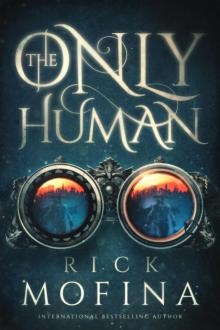 The Only Human
The Only Human Tom Reed Thriller Series
Tom Reed Thriller Series![[Tom Reed and Walt Sydowski 04.0] No Way Back Read online](http://i1.bookreadfree.com/05/tom_reed_and_walt_sydowski_04_0_no_way_back_preview.jpg) [Tom Reed and Walt Sydowski 04.0] No Way Back
[Tom Reed and Walt Sydowski 04.0] No Way Back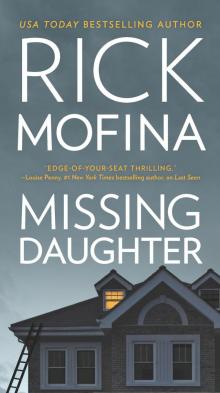 Missing Daughter
Missing Daughter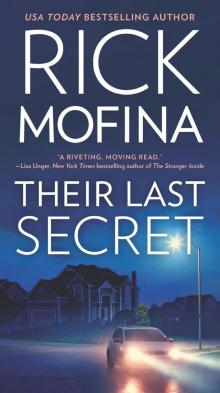 Their Last Secret
Their Last Secret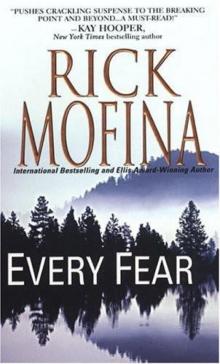 Jason Wade - 02 - Every Fear
Jason Wade - 02 - Every Fear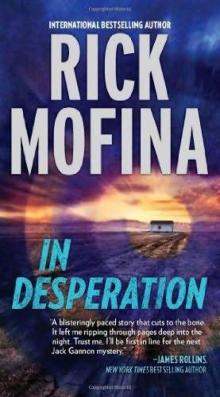 In Desperation
In Desperation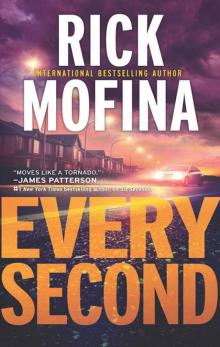 Every Second
Every Second Full Tilt
Full Tilt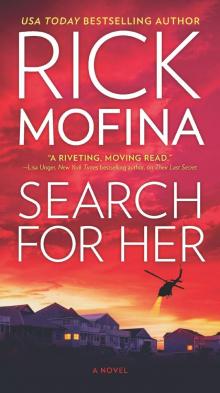 Search for Her
Search for Her The Last Pursuit
The Last Pursuit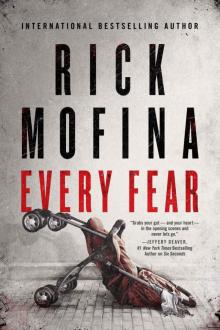 Every Fear
Every Fear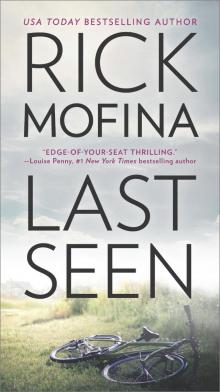 Last Seen
Last Seen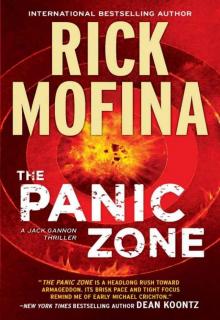 The Panic Zone
The Panic Zone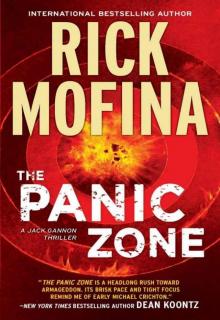 The Panic Zone jg-2
The Panic Zone jg-2 Free Fall
Free Fall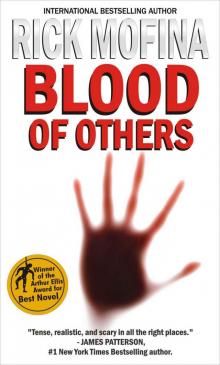 Blood of Others
Blood of Others![[Jason Wade 02.0] Every Fear Read online](http://i1.bookreadfree.com/i1/03/31/jason_wade_02_0_every_fear_preview.jpg) [Jason Wade 02.0] Every Fear
[Jason Wade 02.0] Every Fear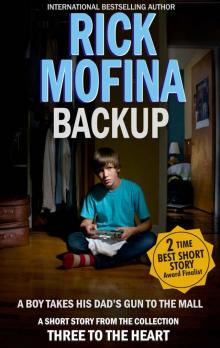 Backup
Backup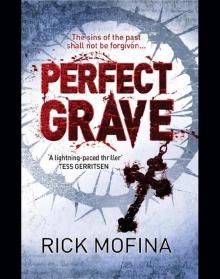 Perfect Grave
Perfect Grave Into the Dark
Into the Dark Whirlwind
Whirlwind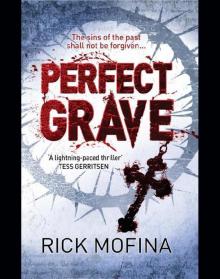 Perfect Grave jw-3
Perfect Grave jw-3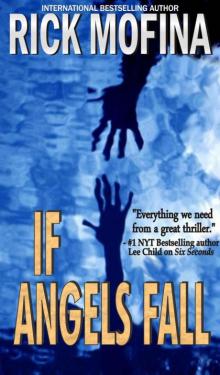 If Angels Fall (tom reed and walt sydowski)
If Angels Fall (tom reed and walt sydowski)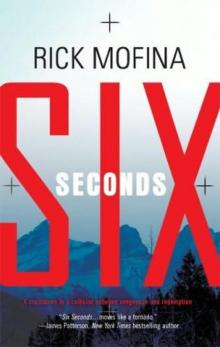 Six Seconds
Six Seconds If Angels Fall
If Angels Fall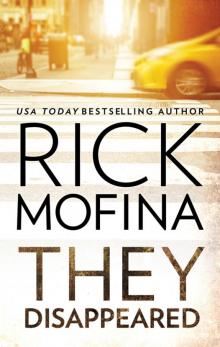 They Disappeared
They Disappeared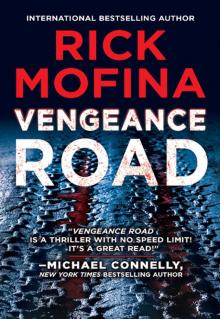 Vengeance Road
Vengeance Road Before Sunrise
Before Sunrise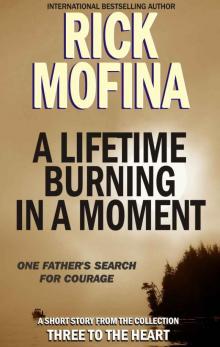 A Lifetime Burning in a Moment
A Lifetime Burning in a Moment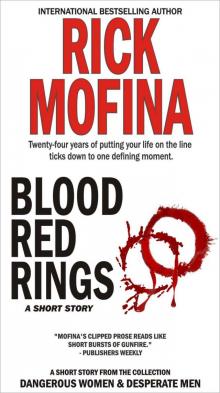 Blood Red Rings (Dangerous Women & Desperate Men)
Blood Red Rings (Dangerous Women & Desperate Men) As Long As We Both Shall Live (Dangerous Women & Desperate Men)
As Long As We Both Shall Live (Dangerous Women & Desperate Men)![[Tom Reed and Walt Sydowski 01.0] If Angels Fall Read online](http://i1.bookreadfree.com/i2/04/12/tom_reed_and_walt_sydowski_01_0_if_angels_fall_preview.jpg) [Tom Reed and Walt Sydowski 01.0] If Angels Fall
[Tom Reed and Walt Sydowski 01.0] If Angels Fall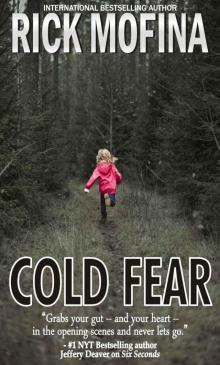 Cold Fear
Cold Fear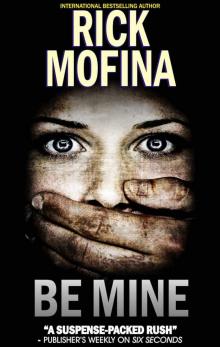 Be Mine
Be Mine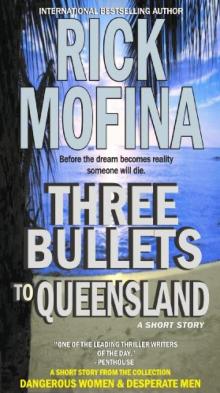 Three Bullets To Queensland
Three Bullets To Queensland